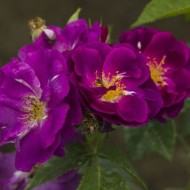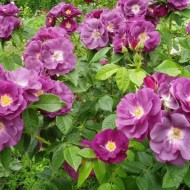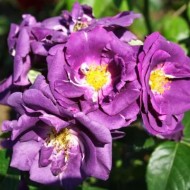Blue rose at their summer cottage: making the dreams of gardeners come true
Content
Are there blue roses in nature?
Blue roses are found on store shelves, but the question is: can you find seedlings or seeds of such a plant? You need to target varieties with the prefix "blue" in the name. True, in fact, such flowers will not be blue, but lilac. It is unrealistic to grow a blue plant on a personal plot.
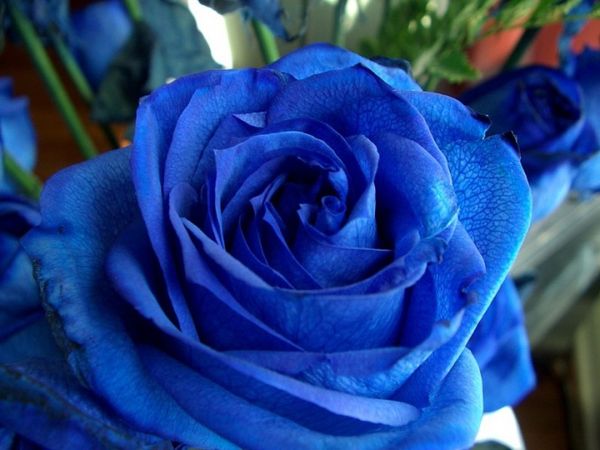
To date, breeders have managed to bring out climbing roses, the inflorescences of which are painted in a delicate lavender shade. If the plant is properly cared for, its inflorescences may temporarily turn bluish.
Video "How to paint a rose"
In this video, you will learn how to properly paint a rose at home.
Artificial flower coloring methods
As for the plants on store shelves, they are obtained by dyeing. To do this, use various methods:
- food colorings;
- spray paint;
- potassium permanganate;
- methylene blue solution;
- copper sulfate.
These techniques are suitable for cut flowers that must be immediately soaked in water or sprayed with paint.
Methylene blue solution
The people call this solution "blue". It can be used to color freshly cut inflorescences. To do this, add the solution to water in a ratio of one milliliter to one glass. Do not overdo it with concentration, as you can get a dark shade.
Copper sulfate
Copper sulfate can be used to fertilize the soil. To do this, always add a little powder to the water before each watering. You should not use this method for sprinkling indoor plants, since this substance emits harmful vapors that are dangerous to human health.

Copper
Bury objects made of this metal or copper powder in the rose garden near the roots of the plants. This substance has a blue-staining effect on roses. However, it is difficult to predict the shade that will turn out in the end, because it can be dark blue or sky blue. The result depends on the amount of metal, its distance to the roots, as well as impurities in the product.
Food coloring
This method can be used for both cut flowers and bush flowers. To do this, add the dye to the irrigation water or to the vase containing the buds. Depending on the amount of dye, you can vary the degree of color saturation of the petals.
Rose varieties similar in color
In nature, there are several varieties of roses that belong to the category "blue". However, in reality, their hue will be closer to purple than blue.
Lavender dream
The buds of this variety are flat, with double ends, a lilac-blue hue. This variety has virtually no thorns, which makes it easy to care for. It grows in the form of a small bush that scatters branches at a breakneck speed. Shoots appear every day and are immediately covered with inflorescences.If you have a good stock, you can leave the bushes for the winter without cover.

A feature of the variety is the small amount of foliage. During the period of abundant flowering of the rose, the leaves are not visible at all, so from afar it seems that the bush is covered with small clouds.
Rhapsody in blue
Differs in constant and abundant flowering, in addition, there is the possibility of short pruning. It is impossible not to mention the pleasant aroma that the flower possesses, as well as the intense growth. This hybrid shrub grows up to a meter, which gives additional opportunities for use.
The buds of the plant are terry, lilac in color, have about three dozen petals. Flat conical inflorescences have a white center with bright stamens.
Charles de gaulle
This variety is famous for its violet-blue hue, original shape and pleasant aroma. The buds reach 10 cm in diameter. They have about 35 double petals. Each petal is dense, so the bud retains its attractive appearance for a long time. Due to these properties, florists use this variety for making bouquets. The bush grows an average of 70 cm, spreads moderately.
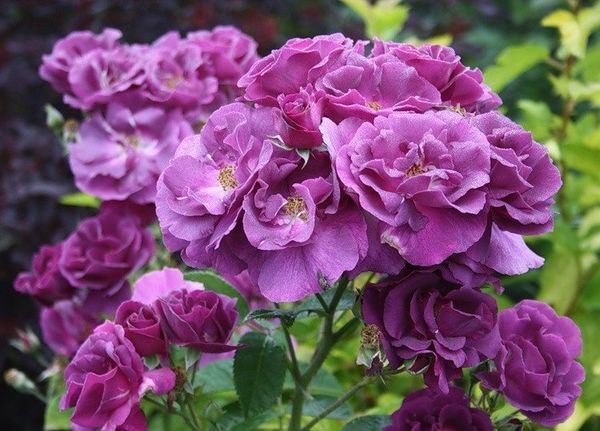
Blue angel
The color of this flower is deep, purple. It can change saturation depending on the conditions in which it grows. Inflorescences are small, terry, exude a pleasant aroma. The bushes gradually bloom throughout the season.
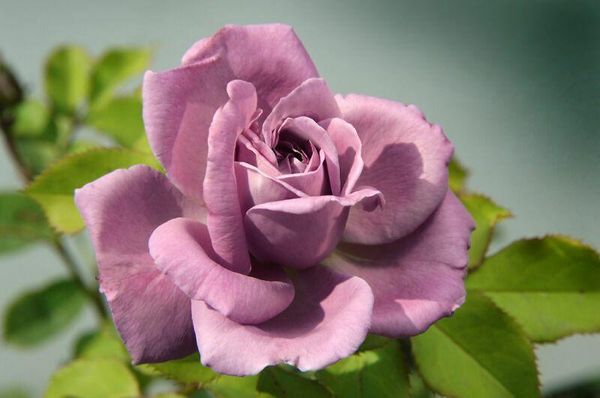
Blue bajou
This tea rose has a large number of golden stamens and semi-double petals. The bush grows up to a meter, it is most often used as a hedge or planted on curbs. For active flowering, the place must be well lit.

Blue girl
This hybrid has a pastel purple hue and a lilac scent. Flowers grow singly, their diameter is about 10 cm. Bushes grow up to 1.5 m, they love warmth. If you do not provide good shelter during the cold period, the rose will freeze.
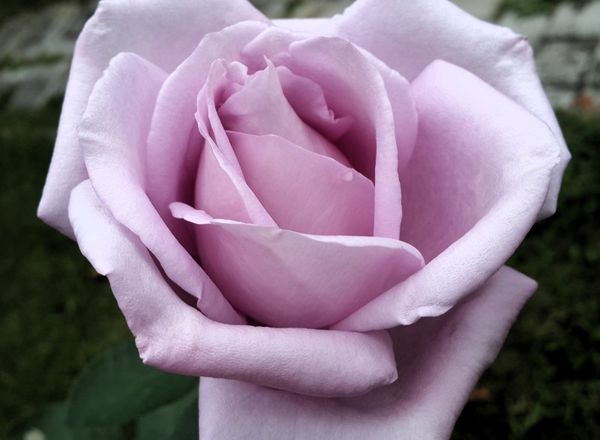
Blue moon
A lot of light is needed for the development of this variety. It blooms in phases - from late spring to mid-autumn. Delicate lavender buds with terry edging are grown in flower beds or in greenhouses.

Blue parfum
This variety owes its name to its noble and strong aroma. A small bush grows large buds, the diameter of which reaches 12 cm. The shade of flowers can vary from silver to pale purple. The bush blooms in mid-spring; in suitable conditions, the aroma only intensifies.

Blue river
This plant has a strong, pleasant odor that remains even when dried. The buds are oval, rather wide. Inflorescences are large, terry. On the outer edge of the petals there is a pink edging, which is harmoniously combined with the lilac shade of the flower.
Leaves do not grow at the bottom of the bushes, which must be taken into account when planting. Flowering begins in early summer and ends with the first cold snaps.
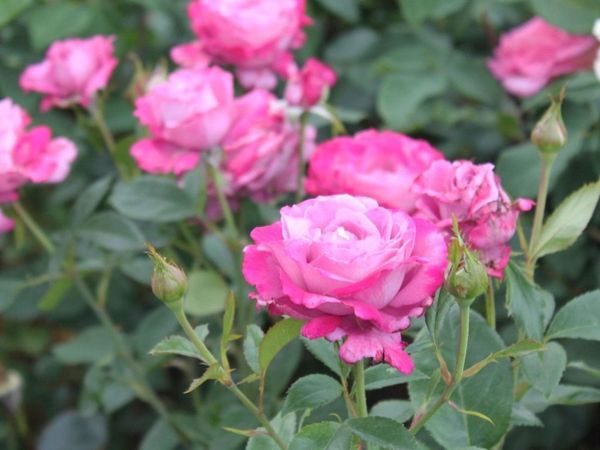
Midnight blue
This tea hybrid has a bluish purple hue. The flowers are large, neat in shape. The bushes are tough and the leaves are dark green. The plant has many thorns.
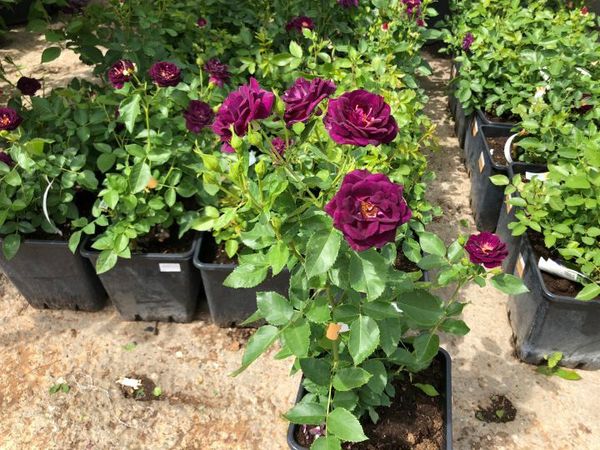
As you can see, blue roses do not exist in nature. You can plant one of the varieties that belongs to the "blue" group on your site, or you can create a blue rose on your own. Keep in mind that the artificially created color can wash out of the buds over time and stain the water in the vase.

